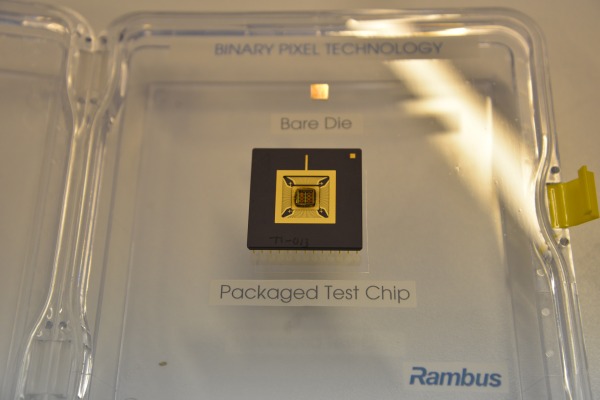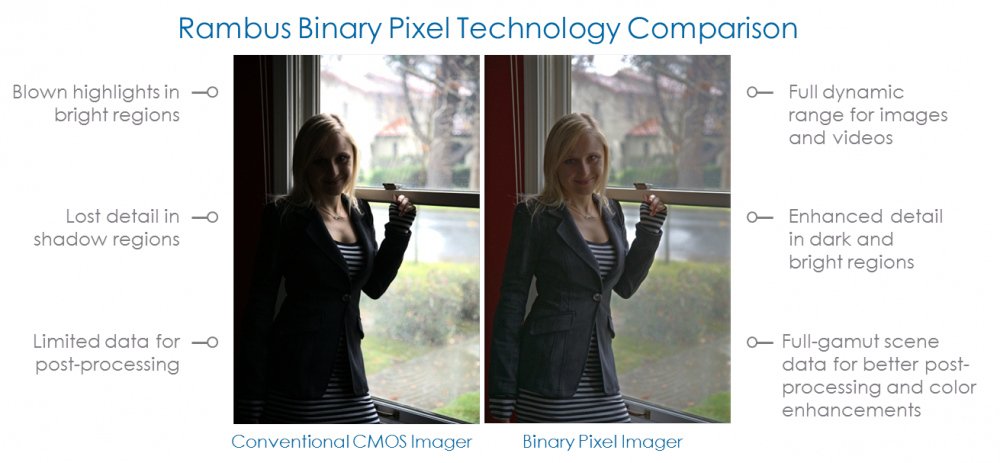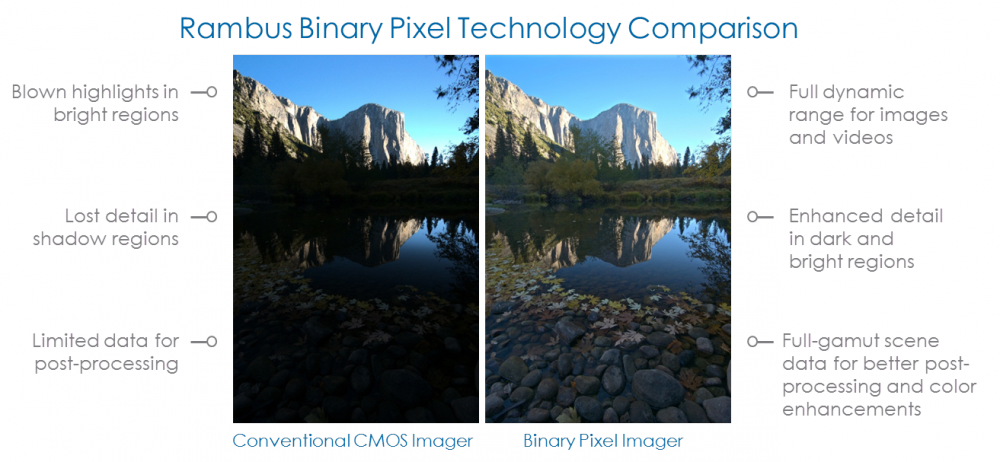Rambus Binary Pixel Wants to Put Super Camera in Your Phone
Rambus promises that with its Binary Pixel you'll be able to take great pictures with a smartphone. Unfortunately, it won't be available for a while.
At the Mobile World Congress in Barcelona there weren't just phones, but also upcoming phone technology. Spain was the place for Rambus to show Binary Pixel, a technology that promises to greatly improve the quality of the pictures we take with our smartphones.
That's quite a significant promise, since every day more of us are using a phone as a primary picture-taking device, leaving at home a proper camera. This usually means giving up some quality in exchange for, but gap could soon be closing.
Rambus says its innovation is made out of two things: a new kind of sensor and the software, which applies HDR to every shot. The idea is to take more light and detail into the lens and the sensor.
"Today’s compact mainstream sensors are only able to capture a fraction of what the human eye can see," said Dr. Martin Scott, chief technology officer at Rambus. "Our breakthrough binary pixel technology enables a tremendous performance improvement for compact imagers capable of ultra high-quality photos and videos from mobile devices."
The target is to take better pictures even in high contrast scenarios: dusk or dawn, strong daylight with shadowed areas – always keeping as much details as possible in every part of the picture. "This binary pixel technology is optimized at the pixel level to sense light similar to the human eye while maintaining comparable form factor, cost and power of today’s mobile and consumer imagers," Scott added.
Putting it in a simple way, Binary Pixel applies HDR to every image taken and improve the signal-to-noise performance in low-light conditions. The demos we saw at the Mobile World Congress looked good, but we'll have to wait some time before seeing this chip installed in actual phones.
Rambus told us that it would still need 18 months to go from the prototype stage to the commercial product, and another six months to reach the shelves in one or more smartphones. That may not be a long time for a completely new technology, but in the meantime others players are working on their own solutions: we'll soon see more Nokia PureView or HTC Ultrapixel cameras – like the one on the HTC One – which could make Binary Pixel obsolete even before it makes it to the market.
Get Tom's Hardware's best news and in-depth reviews, straight to your inbox.
-
DroKing Lol what? I dont see much difference and weren't rambus the same company who screwed others?Reply -
bunz_of_steel Rambus memory I recall and it was costly to use.... if same company then nahh. Besides if they have this for Cell phone when are the big boy's like Canon, Nikon, Sony gonna poop one out?Reply -
curiosul tarzan2001Kinda looks like they just turned up the brightness in the images on the right...It's not the brightness, it's called High Dynamic Range (HDR).Reply
bunz_of_steelRambus memory I recall and it was costly to use.... if same company then nahh. Besides if they have this for Cell phone when are the big boy's like Canon, Nikon, Sony gonna poop one out?
This (HDR) is something that ALL camera/sensors manufacturers have ignored competing instead in the ISO/MP areas -
chicofehr The lack of proper optics is what cell phones lack. No matter how good the sensor is, if you got crap optics, the picture wont look as good. A cheap stand alone camera will still do better. When u zoom in a pic taken with any cell camera, u see the difference.Reply -
wannabepro It needs to have a high quality normal camera as a third section of the video so we can see exactly what it's supposed to look like.Reply


